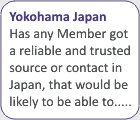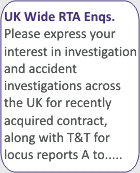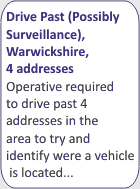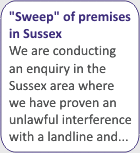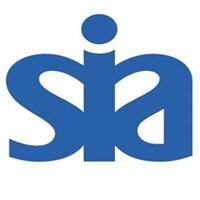.

PROFESSIONAL PRIVATE INVESTIGATION DIPLOMA TRAINING COURSE SYLLABUS
 Module 1: Overview of a Private Investigator
Module 1: Overview of a Private Investigator
- Overview of a private investigator
- How do you become a professional pi?
- Power and authority
- Police officers and detectives
- Private detectives
- Private investigators
- General Instructions
- Instructions private investigators undertake
- Process serving
- Tracing
- Status and credit reports
- Accident and insurance enquiries
- Repossessions
- Matrimonial and surveillance work
- Qualifications
- Important qualities for aspiring Private Investigators
- Conditions of work
- Working hours
- Equipment required

 Module 2: Process Serving
Module 2: Process Serving
- Overview of Process Serving
- What is process serving?
- Two factors to ensure success
- Read the instructions
- Identify the papers
- Sealed envelopes
- Checking procedures
- Hearing dates
- Identification
- Evasive people
- Non-cooperation
- Named persons
- Leaving documents
- Whether to serve
- After service procedures
- Permissible times
- Permissible places
- Imparting information
- Verbal Presentation
- Destroyed documents
- Substituted service
- Letter box service
- Problems
- Types of documents and papers
- Affidavits
- Process serving at a glance
- Tips for successful service

 Module 3: Affidavits
Module 3: Affidavits
- Overview of Affidavits
- Letter of appointment
- Affidavits
- Swear an affidavit
- High court
- County court
- Magistrates court
- Witness summons
- Bankruptcy petition
- Winding up petition
- High court order
- Statutory demand for payment
- Substituted service of a statutory demand for payment
- Notes on completing affidavits
- Getting it right
- Court jargon
- Word processor
- Important points to remember
 Module 4: Surveillance
Module 4: Surveillance
- Overview of Surveillance
- Introduction
- About surveillance
- Surveillance tips
- Case study
- Detailed surveillance
- Motor vehicles
- Planning
- Vehicle surveillance
- Foot surveillance
- Static surveillance

 Module 5: Photography & Video Surveillance
Module 5: Photography & Video Surveillance
- Video surveillance
- Photography
- Basics of photography
- Two-way mirrors
- Remote video surveillance
- Fibre optics
- Keeping records
- Discretion
- Overview of Tracing
- Client types
- Absconders and runners
- Long Term absentees
- Here but hidden
- Accumulating information
- Checking Addresses
- Covert techniques
- Forwarding addresses
- Making local enquiries
- Doubtful information
- Name changes
- Employment
- Motor vehicles
- Databases
- Sub-agents
- Alternative Methods
- Failure
- Fees
- Dealing with Solicitors
- Keeping records
- DVLA
- Tracing Methodology

 Module 7: Missing Persons
Module 7: Missing Persons
- Overview of missing persons
- Missing persons
- Introduction
- Missing family members
- Money and work
- Friends
- Morals
- Costing
- Keep the case open
- Probate matters
- Summary of tracing missing persons
- Overview of Accident Reporting
- Accident reports
- Introduction
- Check the paperwork - verify the facts
- Check the accident report
- Interview the driver
- Driver (or witness) interview sheet
- A note on witnesses
- Photographing the scene
- Preparing sketch plans
- Writing your report
- Conclusion
- Summary

 Module 9: Status Reports
Module 9: Status Reports
- Overview of status reports
- Originating instructions
- Fees
- Status investigations
- Procedure
- Obtaining instructions
- Detrimental reports
- Final reporting
- Computer Data Agencies
- Summary
 Module 10: Repossessions
Module 10: Repossessions
- Overview of Repossessions
- Morals
- Procedures
- House repossession
- Securing property
- Boarding up
- Closing down services
- Taking an inventory
- Mail / post Handling
- Final report
- Equipment
- Motor vehicles
- Locating properly
- Simple repossession
- Dealing with problems
- Vehicle on public road
- Not in Attendance
- Repossessing office equipment, etc
- Summary
- Repossession Key Points

 Module 11: Debt collecting
Module 11: Debt collecting
- Overview of debt collecting
- Before you start
- The licence
- Debt counselling and adjusting
- Debt collecting
- Group account collections
- Legality of debtor
- Debtor evasive actions
- Visiting frequency
- Bailiff Duties
- Limited companies
- Court action
- Normal debt collection
- Negotiation
 Module 12: Legal matters
Module 12: Legal matters
- Overview Legal matters
- What is 'The Law'
- Authority
- Protection
- Personal protection
- Perjury
- Impersonation
- Conclusions
- Communications
- Investigations
- Administration
- Perseverance
- Willingness
- Patience
- Sense of humour
- Professionalism
- Business sense
- Summary

 Module 13: Tools of the trade
Module 13: Tools of the trade
- Overview of tools of the trade
- Equipment needed
- Essential equipment
- Car
- Cameras
- Polaroid camera
- Video camera
- Binoculars
- Compact tape recorder
- Other equipment
 Module 14: Electronic Methods
Module 14: Electronic Methods
- Overview of electronic methods
- Counter Measures
- Bugs & Types
- Technical breakdown
- Frequencies and scope
- Legality
- Sweeping
- Locations
- Hidden tape recorders
- Overhearing sensitive information
- Telephone taps
- Other listening devices
- Electronic counter surveillance
- Electronic de-bugging
- The warning signs
- What to do next
- De-bugging techniques
- Physical searches
- FM bugs
- Action on discovery
- Advice, hints and tips on bug detection
- Guidelines for debugging

 Module 15: Undercover & Covert Operations
Module 15: Undercover & Covert Operations
- Overview of the undercover agent
- Description
- Stock control
- Information theft
- Morality issues
- Getting the details right
- Investigations
- Dedication
- Observation
- Report Writing
- Timeframe
- Reacting to situations
- Risks
- Industrial espionage
- Corruption
- Conclusion
 Module 16: Tricks of the trade
Module 16: Tricks of the trade
- Methods, actions and procedures to achieve goals and overcome problems.
- Of course, only to be revealed in the training manual.
 Module 17: Detecting Lying
Module 17: Detecting Lying
- Overview of Lying
- Detecting Liars
- Detecting Body Language & Facial Expressions
- Interpreting Verbal Responses
- Applying Techniques

 Module 18: Data, Information, Privacy and the law
Module 18: Data, Information, Privacy and the law
- Data Protection Act 1998
- Freedom of Information Act 2000
- Computer Misuse Act 1990
- The Human Rights Act 1998
- Telecommunications (Lawful Business Practice) (Interception of - Communications)
- Regulations 2000
- Wireless Telegraphy Act 2006
- CCTV – Closed Circuit Television
- How to Comply With the DPA
- Useful ICO Publications
- Phone Hacking
- Blagging and Pretexting
 Module 19: Setting Up Your Private Investigation Agency
Module 19: Setting Up Your Private Investigation Agency
- Types of business - Options
- Tax & VAT considerations
- Overheads
- Investigative Equipment - Options
- Start-up Costs
- Assignment Costs & Estimations
- Charging - Fees and Hourly Rate
- Insurance & Indemnity
- Naming Your Agency
- Employees and Sub-Contracting

 Module 20: Marketing and Promotion
Module 20: Marketing and Promotion
- Getting Your First Clients
- Advertising and Promotion
- Mail Shots and Print Media
- Direct Selling
- Potential Market Breakdown
- Approaching Solicitors
- Website and Internet Presence
 Module 21: UKPIN Networking
Module 21: UKPIN Networking
- System Overview
- How to Sub-Contract
- Agent-to-Agent charging
- Exploiting the Network Potential
Training with and being a member of the UKPIN will give you success.
To read more about our home study training course - Click here
 Act now and have a great career by becoming a private investigator with the UKPIN
Training Course.
Act now and have a great career by becoming a private investigator with the UKPIN
Training Course.
Become A Private Investigator |

|

.
.




